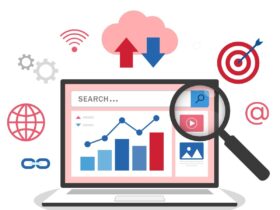As the business world evolves and adapts to modern technology and globalization, the role of the human resources (HR) consultant is more important than ever. Today, HR consultants manage complex projects, solve various people-related issues, and guide organizations through change if you are considering a career as an HR consultant or want to refine and enhance your skills.
Here are the top essential skills you need to possess or develop;
Communication: HR consultants must possess excellent communication skills to convey complex ideas and insights to their clients effectively. This includes active listening to understand client needs, clearly articulating strategies and recommendations, and presenting information concisely and engagingly.
Analytical skills: The ability to collect, organize, and interpret data plays a crucial role in the success of a human resources consultant. By developing analytical skills, you can uncover patterns, trends, and correlations in workforce metrics, make informed decisions, and present data-driven solutions to clients.
Problem-solving: Often called upon to tackle complex HR challenges, HR consultants should be adept at identifying root causes, evaluating potential solutions, and implementing corrective measures. A systematic approach to problem-solving helps facilitate successful outcomes for clients.
HR knowledge: HR consultants should have a strong foundation in human resources practices, laws, and regulations. This includes knowledge of employment laws, labor relations, compensation and benefits, recruitment and selection, performance management, and employee development.
Change management: Change is an inevitable aspect of organizational growth, and HR consultants play a critical role in guiding companies through transitions. Developing expertise in change management enables you to analyze the impact of change on employees, design and implement change initiatives, and monitor the success of these interventions.
Project management: Many HR consulting assignments involve managing projects, such as implementing new HR software or redesigning HR processes. Project management skills are valuable in ensuring that these initiatives are executed successfully.
Client relationship management: Clients are at the heart of any HR consultant’s success. Building and maintaining strong client relationships requires excellent communication, listening, and interpersonal skills. A health and safety consultant anticipates client needs and proposes tailored solutions that align with business objectives.
Cultural sensitivity: As organizations become increasingly diverse and global, HR consultants must deeply understand cultural differences and their impact on the workplace. This skill enables HR for small businesses to work effectively with individuals from various cultural backgrounds and advise clients on creating inclusive and productive work environments.
Negotiation and conflict resolution: HR consultants often navigate complex workplace disputes and negotiate on clients’ behalf. Strong negotiation and conflict-resolution skills will help you reach meaningful solutions while preserving relationships and ensuring the best outcome for all parties involved.
Ethical and Legal Awareness: HR consultants must adhere to ethical standards and legal requirements in all their HR practices. This includes maintaining confidentiality, avoiding conflicts of interest, and ensuring compliance with labor laws and regulations.
Wrapping up
The success of an HR consultant lies in mastering these essential skills and constantly refining them. By investing in your professional development, you set yourself apart as an invaluable asset to clients, contributing to their growth and success.












